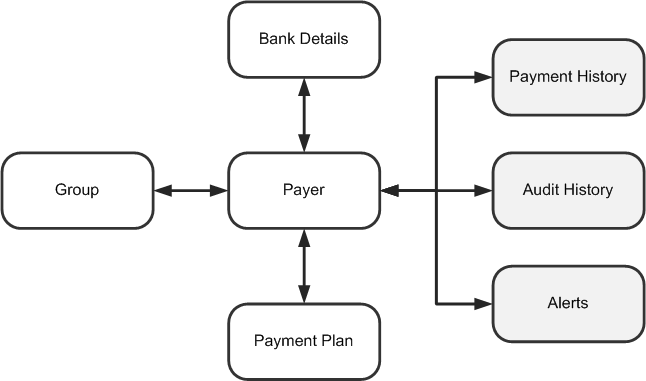The following are several key concepts that you should understand before using the features PayGate Enterprise DDMS.
Groups
The PayGate DDMS makes use of PayGate Groups in order to control user access and hold configuration settings. A special DDMS group is included for exclusive use for DDMS. You can read more about groups in this section.
Payers
A payer is an individual who you collect a payment from using the Direct Debit scheme. Each payer beings to a specific PayGate Group. A Payer has a unique payment schedule and the payer's collection history and alerts are linked to the payer. Begin reading more about payers in this section.

Payment Schedules
Each payer has a schedule. This controls how much and how often you can take a collection from a payer. Please see the section on Payer Schedules for more details information.
Payer History
As you create Payers and process direct debits, PayGate keeps a record of everything that happens to a payer's account. Please see the Payer History section for more details.
Alerts
As you process direct debits and advices, sometimes operator intervention is required. For example, if PayGate receives an instruction that a payer has closed their bank account, PayGate will automatically suspend the payer's account and prevent further collections. As a Service User you will want to know about this account closure so that you can contact the payer and discuss alternative payment methods.
To prevent these issue being missed, PayGate automatically creates alert messages that draw an operator attention to the fact they they need to taken some action.